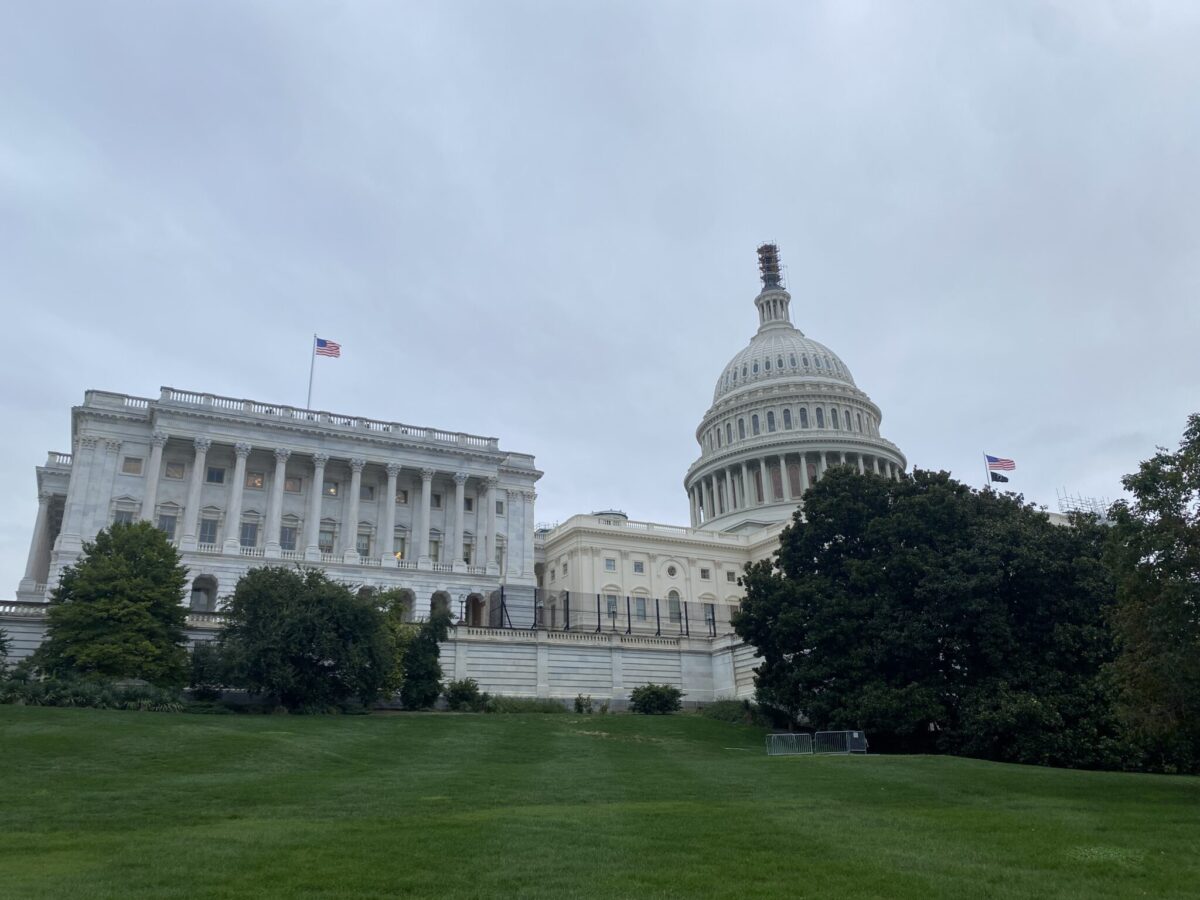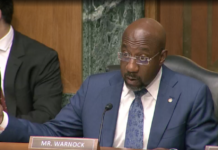
The man who oversaw two contentious high-stakes Georgia statewide elections has a new primary challenge in his own bid for re-election.
Congressman Jody Hice, a Greensboro Republican, announced Monday he will run against Secretary of State Brad Raffensperger in 2022.
“Free and fair elections are the foundation of our country,” Hice said in a statement announcing his candidacy. “What Brad Raffensperger did was create cracks in the integrity of our elections, which I wholeheartedly believe individuals took advantage of in 2020.”
Numerous inquiries produced no evidence of widespread voter fraud in the 2020 presidential election, but Raffensperger faced withering criticism from members of his own party after then-President Donald Trump was narrowly defeated by President Joe Biden in Georgia.
Hice was a leading voice in that criticism, signing onto a failed lawsuit seeking to overturn the results of the election and refusing to certify Biden’s win.
Trump quickly emailed an endorsement of Hice.
“Unlike the current Georgia Secretary of State, Jody leads out front with integrity,” Trump said in a statement. “I have 100% confidence in Jody to fight for Free, Fair, and Secure Elections in Georgia, in line with our beloved U.S. Constitution. Jody will stop the Fraud and get honesty into our Elections! Jody loves the people of Georgia, and has my Complete and Total Endorsement.”
Raffensperger fired back at Hice and his claims of an unfair election in a statement Monday.
“Few have done more to cynically undermine faith in our election than Jody Hice,” Raffensperger said. “We saw in January what Georgia voters will do to candidates who use that rhetoric. His recklessness is matched by his fecklessness as a congressman. Georgia Republicans seeking a candidate who’s accomplished nothing now have one.
Fallout from the 2020 election still reverberates underneath Georgia’s Gold Dome, where Republican lawmakers are pushing controversial changes to the election system, including requiring photo identification for absentee voting.
“Though I am encouraged to see the General Assembly taking it upon themselves to address some of the glaring issues in our elections, Georgia deserves a Secretary of State who will own the responsibilities of the office,” Hice said. “If elected, I will instill confidence in our election process by upholding the Georgia Constitution, enforcing meaningful reform and aggressively pursuing those who commit voter fraud.”
Former Alpharetta mayor David Belle Isle, a Republican, also announced his intention to run against Raffensperger Monday. Belle Isle lost to Raffensperger in a 2018 Republican runoff with about 38% of the vote.
Belle Isle is also casting his campaign as a referendum on Raffensperger’s supposed failures in 2020.
“I never imagined that a member of our own party would bring Georgia’s election system to its knees, but Brad Raffensperger unilaterally bargained away our election integrity with Stacey Abrams and Fair Fight Georgia,” he said. “He was careless in his decisions throughout the election process, and he skewered the integrity of our mail-in ballot system, all the while looking us in the eye and telling us this was the safest, most secure election in Georgia’s history.”
Belle Isle also blamed Raffensperger for Sens. Jon Ossoff and Raphael Warnock’s January runoff wins, saying Republicans did not turn out to vote because they did not trust the election system.
Former Democratic State Rep. Vernon Jones, another Trump favorite who often appeared on stage with the former president last fall, said Monday he has not ruled out a run for Raffensperger’s job.
Raffensperger, who has given no indication he will not seek re-election, could have his work cut out for him, said University of Georgia political science professor Charles Bullock.
“This was to be expected that there would be people who would get into it to challenge Raffensperger, and the polling I’ve seen, he would have a hard time within a Republican primary,” he said. “Three-fourths of Republicans in Georgia think, indeed, Trump did win the state. If a candidate runs, whether blatantly or subtly, on the proposition that Raffensperger didn’t do a good job and therefore Trump lost Georgia, that will resonate with within a Republican primary.”
Hice’s departure from Congress could mean a shake-up in state GOP leadership as party members seek his seat in solid Republican territory. His east Georgia district stretches from Atlanta’s southern suburbs to the South Carolina border and from southern Clarke County down to more rural areas of the state.
Its population is more than 67% white, according to U.S. Census data, and whoever wins the Republican nomination to replace Hice will likely have a strong advantage. The Cook Political Report in 2017 ranked it the 86th most Republican Congressional District in the country and about 15% more Republican than the nation as a whole.
Hice won reelection in 2020 against Democrat Tabitha Johnson-Green with more than 63% of the vote, and he has won by similar margins since his first campaign in 2014.
The eventual fight to replace Hice could be made more complicated if the boundaries of his district change with Georgia’s decennial redistricting. Having one less sitting Congressman to protect could make line drawing easier for Republicans in the state Legislature, Bullock said.
“With him retiring, that will give Republicans as they go about redrawing the state some latitude,” he said. “They don’t have to worry about protecting him. Now, they’ll want to maintain that seat as a Republican seat, but they may shift it in fairly significant ways.”
One possibility would be to shift more Republican-voting residents from Hice’s district into that of Democratic Congresswoman Carolyn Bourdeaux, Bullock said, but the COVID-19 pandemic caused significant delays for the U.S. Census, and the data used to create districts is not expected for months.
“It’s a real problem for Georgia, but also for other states, that they don’t have the census data,” Bullock said. “And they’re not going to get the census data until September, and then that doesn’t allow you much time to draw the districts, maybe fight off some judicial challenges, all in time for a primary, which will be right about a year now.”







